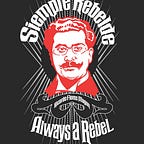Let me preface my comments by noting that I have known and worked with both the people making the racist comments, and those against whom the comments were directed. So, this hurts on many levels.
What disturbed me the most was not just the words used by the four (three councilmembers and one labor leader), but the context and purpose of the conversation. They were discussing how to redraw the council districts in such a way to shore up their own power, to the detriment of other groups, including Blacks, Indigenous people, and renters. The language used in that discussion was just an outward manifestation of the harm they were planning.
One of the groups attacked was KIWA – Koreatown Immigrant Workers Alliance, born from the ashes of the Rodney King uprising in L.A., which has been trying to build multi-racial alliances for decades. In their statement in response, they said:
“Beyond the unethical and potentially illegal behavior implied in the comments, the shortsightedness of politicians who do not recognize our multiracial community’s growing political strength would be breathtaking if it were not so offensive. . . . Perhaps the four of them believe their cynicism was justified, forged as it was within the very system they were now leading. We, on the other hand, see it as the massive blinking sign that it is–Los Angeles needs more virtuous and competent leadership–and every one of us must fight harder if we are to make our city a democracy that gives us power to shape our jobs, our communities, and our lives. We note the positive impacts that these very individuals have had, at different moments, upon Los Angeles. But this incident is an urgent alarm bell for many more Latino, Black, Asian, LGBT, and other Angelenos with antiracist, working-class values and commitments to step into leadership of this great city.”
At the next council meeting, hundreds filled the chambers, all calling for the resignation of all three council members involved (the labor leader had already resigned from his post).
There are two ways to go from here. Both have precedents in Los Angeles history.
One is to continue on the path of division that these four started – for each group to fight the other for scraps of power and wealth. That is what the Afro-American League (local predecessor to the NAACP) did when they jumped on the anti-Asian bandwagon in 1906. That is what I sense (correct me if I am wrong) in Allison Gaines’ statement here that: “Whether the Latino community supports or condemns, Martinez will help shape the relationship between Black and Latino people in Los Angeles.” While the “Latino community” has indeed condemned the four (see picture below), such ultimatums are just another way to draw our wagons around our own group, creating more divisions.
The other path is to use this opportunity to build solidarity instead of division. That is what the Afro-American league did in the 1911 Los Angeles election, joining with the multi-racial Labor-Socialist coalition. That is the path that KIWA has taken in building a multiracial coalition for the last three decades.
To go down the path of solidarity, it is not enough for the councilmembers to resign. They may just be replaced with someone worse. What we really need is to talk to each other, and – at least as important – listen. That is what my Congresswoman, and hopefully our first Black woman to become mayor – Karen Bass – is doing. She convened a meeting of leaders from all the communities affected (which is everybody) to start this discussion to build unity.
One of the groups of people maligned in the recording were Oaxacans. The mostly-indigenous people from southern Mexico faced discrimination within Mexico, and now double-discrimination in the U.S. Oaxacan activist in L.A., Yolozee Bene Yego Modesto (aka Odilia Romero) said: “I do have to remind all of you and the politicians ... that we make this city.”
Another example of a Oaxacan striving for solidarity was the Oaxacan anarchist Ricardo Flores Magon, who started the Mexican Revolution from exile here in Los Angeles. His words are especially appropriate today.
"Solidarity is the consciousness of the common interest, and the actions which follow from that consciousness. . . . Ignorance of humanity's common interest, that is, ignorance of solidarity, makes each man see in the other man a competitor who must be vanquished so that he can live. . . . [Instead] One must consider an injury to one as an injury to all."
Amen.
